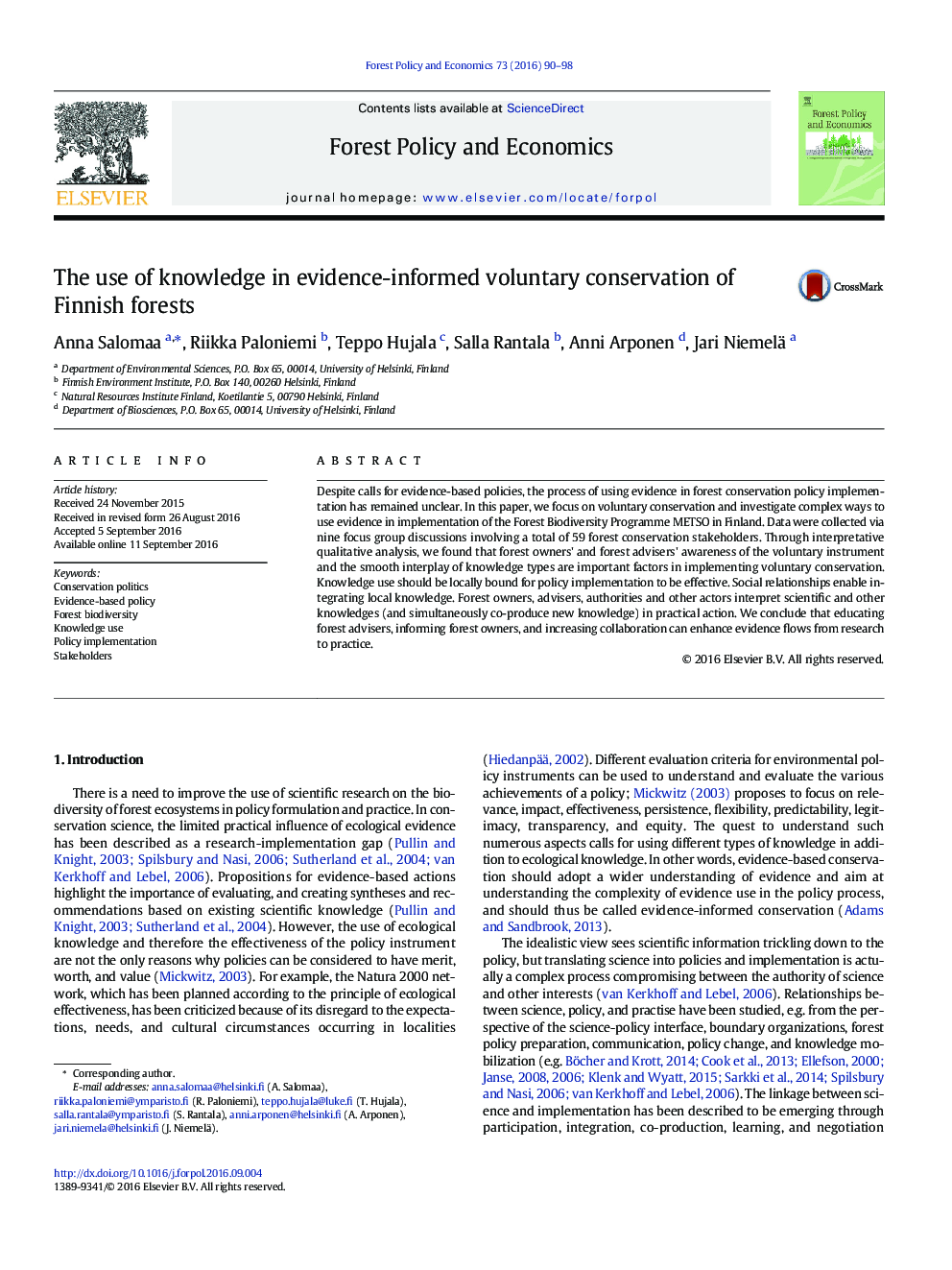| Article ID | Journal | Published Year | Pages | File Type |
|---|---|---|---|---|
| 6459822 | Forest Policy and Economics | 2016 | 9 Pages |
â¢We study knowledge use during voluntary conservation implementation.â¢Conservation effectiveness is a result of being able to locally bind knowledge.â¢Awareness of policy instruments improves implementation.â¢Interaction of various knowledges may have a complicating effect.â¢Collaboration between forest actors should be supported and encouraged.
Despite calls for evidence-based policies, the process of using evidence in forest conservation policy implementation has remained unclear. In this paper, we focus on voluntary conservation and investigate complex ways to use evidence in implementation of the Forest Biodiversity Programme METSO in Finland. Data were collected via nine focus group discussions involving a total of 59 forest conservation stakeholders. Through interpretative qualitative analysis, we found that forest owners' and forest advisers' awareness of the voluntary instrument and the smooth interplay of knowledge types are important factors in implementing voluntary conservation. Knowledge use should be locally bound for policy implementation to be effective. Social relationships enable integrating local knowledge. Forest owners, advisers, authorities and other actors interpret scientific and other knowledges (and simultaneously co-produce new knowledge) in practical action. We conclude that educating forest advisers, informing forest owners, and increasing collaboration can enhance evidence flows from research to practice.
